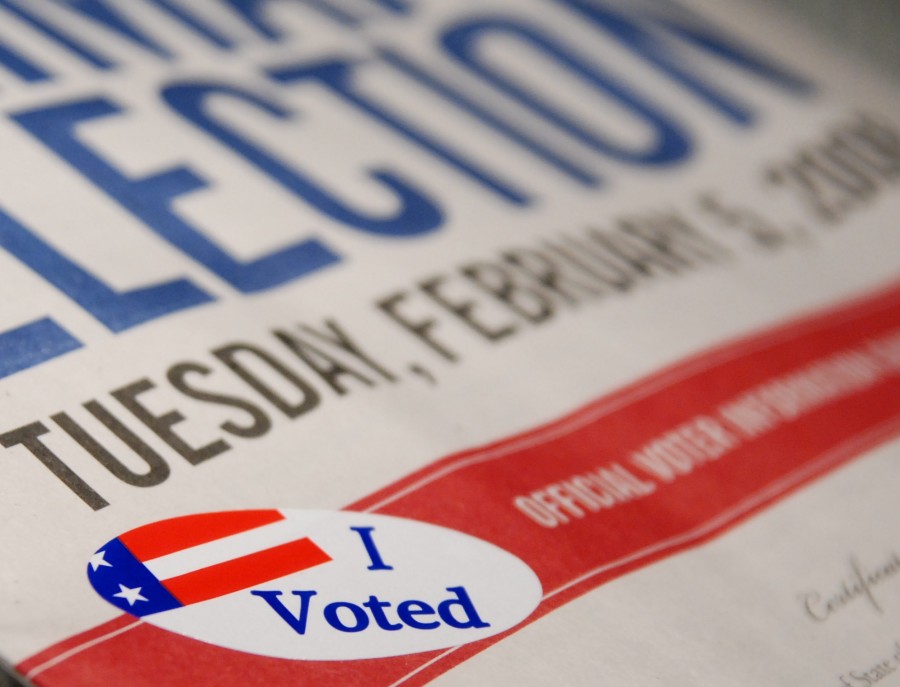Guide to Super Tuesday
March 1, 2016
Seven Candidates. Thirteen States. Two Parties. Two Winners. One Super Tuesday.
So what really is Super Tuesday? It is when thirteen states vote to hand out the most delegates awarded on any given day in the presidential primary campaign.
States involved include Alabama (R&D), Alaska (R only), American Samoa (D), Arkansas (R&D), Colorado (D), Georgia (R&D), Massachusetts (R&D), Minnesota (R&D), Oklahoma (R&D), Tennessee (R&D), Texas (R&D), Vermont (R&D), and Virginia (R&D).
How does it work? Every state participating in Super Tuesday has a different voting process. Some states choose primaries while others choose caucuses.
In primaries, registered voters vote for their desired candidate through a secret ballot similar to the general election. In caucuses, members of the distinct political party meet in a county location to select a candidate, decide policies, and award appropriate delegates proportionate to the congregation size.
What could Super Tuesday mean to the candidates? Because of the huge number of delegates awarded on Super Tuesday, today could be a defining moment for frontrunners Hillary Clinton and Donald Trump who currently have 548 and 82 delegates respectively.
Republican candidates who require 1,237 delegates for a candidate nomination will have the opportunity to secure almost half, while Democratic candidates who require 2,383 delegates will have the opportunity to claim 800 delegates.
A strong Super Tuesday performance is especially needed for Republican Candidate and Texas Senator Ted Cruz who has only won in the state of Iowa. Without a win in his own state where he was won many political endorsements and over 27,000 volunteers working on the ground, Cruz’s campaign will see a long uphill battle to catch up with other Republican frontrunners.
Even Cruz has acknowledged the vitality of a home state win for the life of his as campaign as he said himself, “there is no doubt that any candidate who cannot win his home state has real problems.”
For Ohio Governor John Kasich, an increase in delegates awarded is necessary as the Republican National Committee is pressuring him to drop out. Kasich is optimistic of the primaries in Michigan and Ohio taking place on March 8 and March 15 respectively.
Even Republican candidate Marco Rubio is feeling the pressure to win a couple of states today as his own campaign as formally stated that, “failure by Senator Rubio to exit the SEC primary without a big delegate lead will spell the effective end of Senator Rubio’s campaign.”
On the Democratic side, Super Tuesday could be a major win for Former Secretary of State Hillary Clinton by solidifying a significant delegate lead impossible for Senator Sanders to recover from due to her strong support of super delegates and previous wins. However, wins from Senator Sanders could continue the democratic primary for many months to come.
Super Tuesday is largely known as the turning point in the presidential primary election as the elections turn from four traditional states to a nationwide ordeal, weeding out those trailing behind.


















![“[Building nerf blasters] became this outlet of creativity for me that hasn't been matched by anything else. The process [of] making a build complete to your desire is such a painstakingly difficult process, but I've had to learn from [the skills needed from] soldering to proper painting. There's so many different options for everything, if you think about it, it exists. The best part is [that] if it doesn't exist, you can build it yourself," Ishaan Parate said.](https://harkeraquila.com/wp-content/uploads/2022/08/DSC_8149-900x604.jpg)




![“When I came into high school, I was ready to be a follower. But DECA was a game changer for me. It helped me overcome my fear of public speaking, and it's played such a major role in who I've become today. To be able to successfully lead a chapter of 150 students, an officer team and be one of the upperclassmen I once really admired is something I'm [really] proud of,” Anvitha Tummala ('21) said.](https://harkeraquila.com/wp-content/uploads/2021/07/Screen-Shot-2021-07-25-at-9.50.05-AM-900x594.png)







![“I think getting up in the morning and having a sense of purpose [is exciting]. I think without a certain amount of drive, life is kind of obsolete and mundane, and I think having that every single day is what makes each day unique and kind of makes life exciting,” Neymika Jain (12) said.](https://harkeraquila.com/wp-content/uploads/2017/06/Screen-Shot-2017-06-03-at-4.54.16-PM.png)








![“My slogan is ‘slow feet, don’t eat, and I’m hungry.’ You need to run fast to get where you are–you aren't going to get those championships if you aren't fast,” Angel Cervantes (12) said. “I want to do well in school on my tests and in track and win championships for my team. I live by that, [and] I can do that anywhere: in the classroom or on the field.”](https://harkeraquila.com/wp-content/uploads/2018/06/DSC5146-900x601.jpg)
![“[Volleyball has] taught me how to fall correctly, and another thing it taught is that you don’t have to be the best at something to be good at it. If you just hit the ball in a smart way, then it still scores points and you’re good at it. You could be a background player and still make a much bigger impact on the team than you would think,” Anya Gert (’20) said.](https://harkeraquila.com/wp-content/uploads/2020/06/AnnaGert_JinTuan_HoHPhotoEdited-600x900.jpeg)

![“I'm not nearly there yet, but [my confidence has] definitely been getting better since I was pretty shy and timid coming into Harker my freshman year. I know that there's a lot of people that are really confident in what they do, and I really admire them. Everyone's so driven and that has really pushed me to kind of try to find my own place in high school and be more confident,” Alyssa Huang (’20) said.](https://harkeraquila.com/wp-content/uploads/2020/06/AlyssaHuang_EmilyChen_HoHPhoto-900x749.jpeg)












